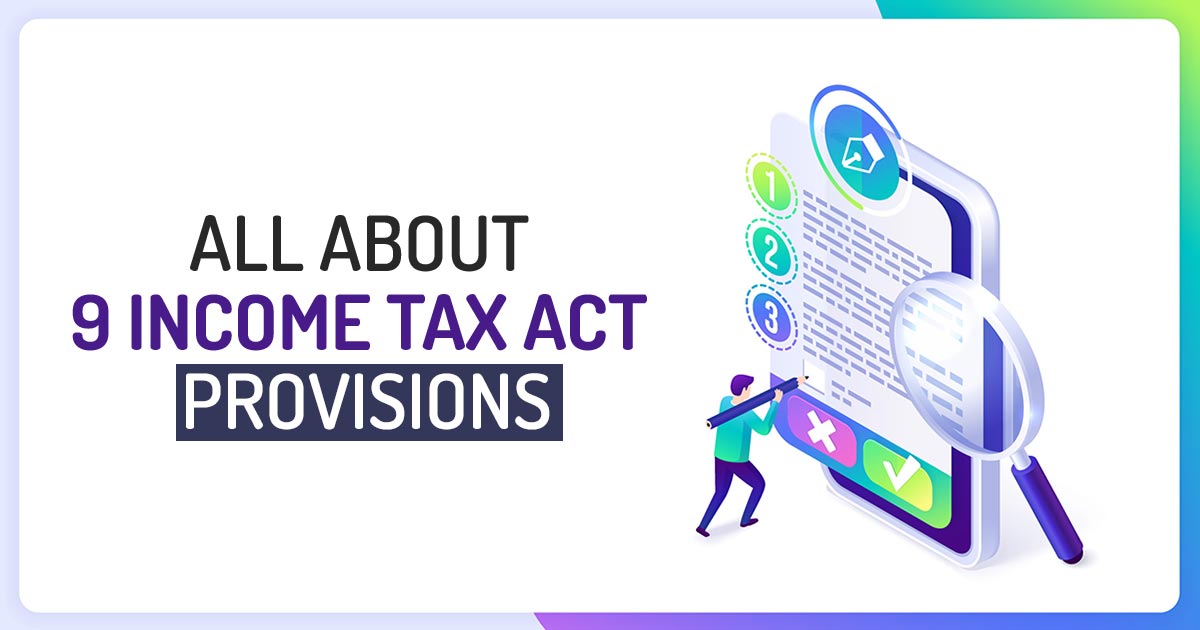

In the former articles, we discussed the income tax law and now wrote an article concerning the ancillary provisions as included in the Income Tax Act, of 1961 itself. The same act consists of different provisions and most of the tax community is very well known about the actual part of the same provision. But the law is so expanded and developed that there are various ancillary or incidental provisions that many of us for the urge of development of knowledge of tax laws might require to reveal. The article shows the incidental provisions which are necessary for the development of an all-around knowledge and familiarity with tax laws.
The circulars provided by the CBDT for the tax effect are furnished beneath section 268A of the act. Hence these fiscal limits are mentioned for showing the plea via revenue to ITAT, High Court, and Supreme Court, and what is ‘tax effect’ is mentioned in the circulars and the power source to provide these circulars in the mentioned section.
Every tax professional and even laymen have learned about the term ‘Assessing Officer’. It is described beneath Section 2(7A). The report was inserted by the Direct Tax Laws(Amendment) Act, 1987 w.e.f 1-4-1988. But did you know that the Commissioner of Income Tax is not one of the income tax authorities beneath Section 116 who is an assessing officer beneath the act.
The taxability of the income of the individual relied on the residence of the specified person as per DTAAs. An individual might be a resident in India, not ordinarily resident, or a non-resident and will need to furnish the tax as per that. Section 6 deals with the residents in India. The income tax liability in India shall not come as per the citizenship of the mentioned individual. The individual might be an individual, HUF, company, firm, etc, and is described beneath Section 2(31) of the Act.
Many people know about the permanent account number(PAN). However various people don’t know about its source or origin. A PAN composes the type of document deriving validity beneath the Income Tax Act, 1961. Section 139A of the Act mentioned the PAN and a PAN is needed for every individual whose total income is more than the amount not subject to tax.
Under section 269ST of the IT act, no one will obtain the amount of Rs 2 lac or exceeding.
“otherwise than by account payee cheque or account payee bank draft or use of electronic clearing system through a bank account or through such other electronic mode as may be prescribed.” Rule 6ABBA is related and mentioned the payment modes along with the debit card, credit card, UPI, Net Banking, and others. Hence, payments obtained by the individual exceeding Rs 2 lac in cash are restricted.
When an individual does not follow section 269ST he might face a penalty beneath Section 271DA “of a sum equal to the amount of the receipt unless he has good and sufficient reasons for the contravention.”
An authorized representative (AR) would not only consist of a name furnished for the counsels and other individuals appearing to ITAT or Commissioner (Appeals). Section 288 of the Act made the term which clarifies that the individual might attend the proceedings prior to these meetings via an approved representative.
Under sub-section 2 it is described as who could be the authorized representative and consists of any individual related to the taxpayer, a lawyer, an accountant, or even an individual timely employed by the taxpayer.
Disclaimer:- "All the information given is from credible and authentic resources and has been published after moderation. Any change in detail or information other than fact must be considered a human error. The blog we write is to provide updated information. You can raise any query on matters related to blog content. Also, note that we don’t provide any type of consultancy so we are sorry for being unable to reply to consultancy queries. Also, we do mention that our replies are solely on a practical basis and we advise you to cross verify with professional authorities for a fact check."

Arpit Kulshrestha seeks higher interests in financial services, taxation, GST, I-T, etc. Writes articles with depth knowledge and is extensive for the same. The resources provide effective articles for the products of SAG infotech which provides taxation and IT software. Writing from observations and researching makes his articles virtuous. View more posts